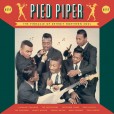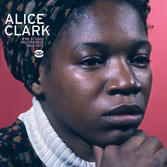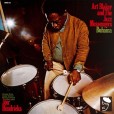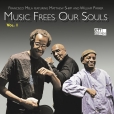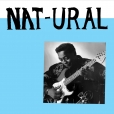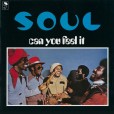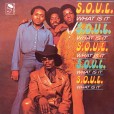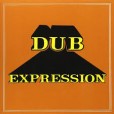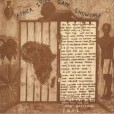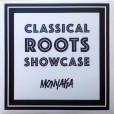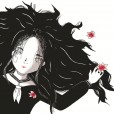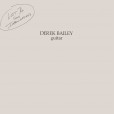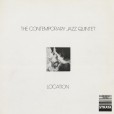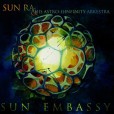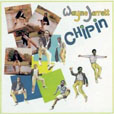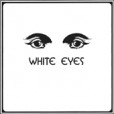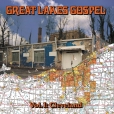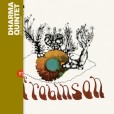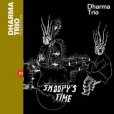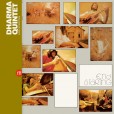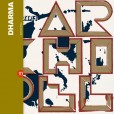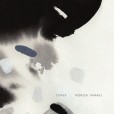Your basket is empty

‘Pied Piper Productions was a group of Detroit arrangers, writers, artists and musicians who unwittingly drew up the blueprints of Northern Soul, during their brief time together in 1965-1967. Mainstays Jack Ashford, Mike Terry, Joe Hunter and Herbie Williams were original members of Motown studio crew the Funk Brothers. This compilation features some of the biggest Northern Soul discoveries of recent times —like Nancy Wilcox and September Jones — alongside established favourites and other rarities.’
NYC soul, with at least two killers — Don’t You Care, and Never Did I Stop Loving You. BGP has unearthed some rarities; and some great photos.
Trying out a more seventies, soulful groove, with the likes of Woody Shaw, Carter Jefferson, Cedar Walton — and Jon Hendricks, who sings on the revival of Moanin’, and Along Came Betty.
Buhaina was Blakey’s name after his conversion to Islam. Of course A Chant For Bu was sampled by A Tribe Called Quest for their almighty Excursions. Altogether now: ‘Back in the days when I was a teenager / Before I had status and before I had a pager…’
Cleveland funk from 1971, featuring a popping version of Express Yourself, a do-over of The Temps’ Message From A Black Man, and — crucially — the b-boy jazz anthem, Burning Spear.
A top-notch selection of High Note and Gay Feet rhythms, expertly mixed the old-fashioned way by Duke Reid’s nephew, Errol Brown.
Brilliant toasting and singing by the likes of Prince Hammer, Echo Minott, Trinity and Lee Van Cliff, over gold-plated Roots Radics rhythms. A precious blend of heavier-than-lead roots, new-thing dancehall flow, and youthman promotion, curated by Hammer himself in 1982. Deeply enjoyable from start to finish.
This iconic LP was originally released by Incus in 1974. Recorded at a private house in Catford, south-east London, the side-long title track is a masterwork: a twenty-two-minute, starkly personal, freely expressive, itchily searching re-casting of orders of rhythm and sound into a new, quicksilver kind of affective and musical polyphony. Never mind the guitarist’s championing of ‘non-idiomatic improvisation’, the poet Peter Riley gets the ball rolling in his identification of the various hauntings of Bailey’s playing at this time: ‘mandolins & balalaikas strumming in the distance, George Formby’s banjo, Leadbelly’s steel 12-string, koto, lute, classical guitar… and others quite outside the field of the plucked string.’
The five pieces on side two were recorded back home in Hackney around the same time — with the exception of Improvisation 104(b), from the year before (and issued by Incus in its TAPS series of mini reel-to-reel tapes) — opening with ventriloquised guitar feedback, and taking in some cod banter about colleagues like Mervyn Parker, Siegfried Brotzmann and Harry Bentink.
Crucial.
Born in Burlington, Vermont, and conservatory-trained in the US, the cellist Tristan Honsinger moved from Montreal to Amsterdam in 1974, quickly linking with Han Bennink and Misha Mengelberg, and opening a long and fruitful musical relationship with Derek Bailey. Recorded in 1976, Duo displays a performative musical approach already characterised by the lack of inhibition which would later endear him to The Pop Group: he is knockabout, exclamatory, explosively rhythmic; burping Bach and folk melodies with spasmodic lyricism, in amongst the garrulous textures and accents of his scraping, bowing and plucking, and gibbering like a monkey; throwing out his arms and stamping the floor, grappling with his instrument like an expert clown, always on the lookout for new ways to trip himself up. You can hear Bailey revelling in the company, as he ranges between scrabbling solidarity and an askance skewering of his partner’s antics, on prepared (nineteen-string) and standard electric guitars — and a Waisvisz Crackle-box, for the garbled, quizzical, cross-species natter which closes The Shadow. Throughout, the spirited interplay between laconic, analytic wit and guttural, sometimes slapstick physicality is consistently droll, often laugh-out-loud funny; vigorously alert, alive and gripping.
Late-sixties recordings from Sun Studios — chez Ra — in Philadelphia.
The first-ever release of six works; plus revivals of 1950s classics Sunology and Ancient Aiethiopia; and an early treatment of Why Go To The Moon.
“We try to reach within free jazz the same sort of rhythmic cohesion as in bop… based not exactly on tempo, but something which feels like tempo. A kind of underlying pulse.”
This is Dharma’s first LP: from the same neck of the woods as the Cohelmec Ensemble, a mixture of spiritual jazz, free jazz and electric Miles — especially for its keyboards — infused by the anti-authoritarian politics of collectivism and anti-hierarchism.
Saxophonists Jef Sicard and Gérard Coppéré are moonlighting from Claude Delcloo’s Full Moon Ensemble.
Their second LP, released three months after Mr. Robinson in 1970.
Funky jazz-rock — tight, direct, restless. Pianist Patricio Villarroel lays on the Corea / Jarrett vibes; alongside bassist Michel Gladieux and drummer Jacques Mahieux.
‘Winding operations down after End Starting, Archipel is likewise planned-out music, mixing free rock and European free jazz in a series of collective explosions based on abrupt and contrasting improvisations. For much of the time, piano, guitar and saxophone intertwine over intense rhythms. Everything is electric, with the density of On The Corner, and flashes of viciousness all its own.
‘Along with the Cohelmec Ensemble, the Workshop de Lyon, the Full Moon Ensemble, Perception, Armonicord or the Michel Portal Unit, the Dharma Quintet stands out as one of the most important examples of free jazz as it was played in France at the beginning of the 1970s.’
The guitarist’s debut album, inspired by a road trip through Brazil, taking in a Sun City Girls show in a remote former gay club, and a visit to a spiritual healer. He leads upright bass, drums, vibraphone, saxophone and percussion.
‘I decided that I would try to forge, in my own way, from my references, from my universe and from the collective intelligence and sensibility that surrounded me, fundamental melodies, repetitive, minimal, hypnotic rhythmic and harmonic patterns that would be crossed by some sort of improvisation, something that referred to a reality that existed before my individual history, that linked to the life of other places and other times.’
‘unique and beguiling…evocative and profound… music of rare depth’ (The Wire).
‘taps into the common ground between meditative, ambient and trance musics… delightful’
(Chris May, All About Jazz).
